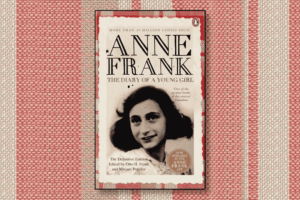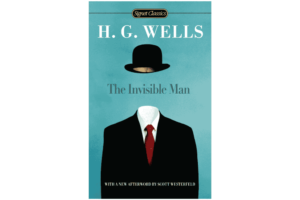The Diary of a Young Girl by Anne Frank
Overview
The Diary of a Young Girl (also known as The Diary of Anne Frank) is a powerful and poignant account of a Jewish girl’s life in hiding during the Holocaust. Written by Anne Frank between 1942 and 1944, the diary was published posthumously in 1947 by her father, Otto Frank, the only member of the Frank family to survive the Holocaust. The diary chronicles Anne’s life while she and her family were in hiding in the “Secret Annex” of a building in Amsterdam, evading Nazi persecution. Anne’s introspective thoughts, reflections on her experiences, and her evolving understanding of herself and the world around her make this book a timeless testament to the human spirit in the face of unimaginable hardship.
Plot Summary
Anne Frank’s diary begins in 1942 when she receives the diary as a gift for her 13th birthday. Over the next two years, Anne records her thoughts, feelings, and experiences as she lives in hiding with her family, another Jewish family (the Van Pels), and a dentist named Fritz Pfeffer. They are joined by their helpers, Miep Gies and her husband, who risk their lives to provide food and support.
Throughout her diary entries, Anne writes about the challenges and tension of living in isolation, the constant fear of discovery, and the emotional toll of hiding from the Nazi regime. She grapples with adolescence—her changing body, developing relationships with her family, and the complex dynamics with the people around her.
Anne’s writing evolves over time, reflecting her growing awareness of the broader situation as the war intensifies, as well as her personal struggles with her identity and desire to become a writer. The final entries reveal her yearning for freedom, peace, and a sense of belonging in a world that seems increasingly hostile. The diary abruptly ends in August 1944, when Anne and her family are arrested by the Nazis after being betrayed. Anne died in the Bergen-Belsen concentration camp in March 1945, just weeks before the camp was liberated by Allied forces.
Themes
The Impact of War on Innocence: Anne’s writings vividly describe the loss of childhood innocence as she faces the trauma of living in hiding, the constant fear of being caught, and the harsh realities of war.
Identity and Self-Discovery: A significant theme of the diary is Anne’s internal journey of self-understanding. She reflects on her evolving identity as a young woman, her dreams, her aspirations, and her feelings of isolation.
The Human Spirit and Resilience: Despite the constant threat of death and the dire conditions she lives under, Anne demonstrates an incredible sense of hope and a deep belief in the goodness of humanity.
Persecution and Injustice: Anne’s writings document the harsh and cruel persecution of Jews during the Holocaust, shedding light on the impact of anti-Semitism and the suffering of millions.
The Power of Writing: Throughout the diary, Anne expresses a desire to become a writer, and her writing itself becomes a source of personal strength. She uses the diary as an outlet for her emotions, frustrations, and reflections.
This book wll always keep inspiring you too keep going through tough times and give a better perspective on what war and hatred brings to the children to noo fault of there




